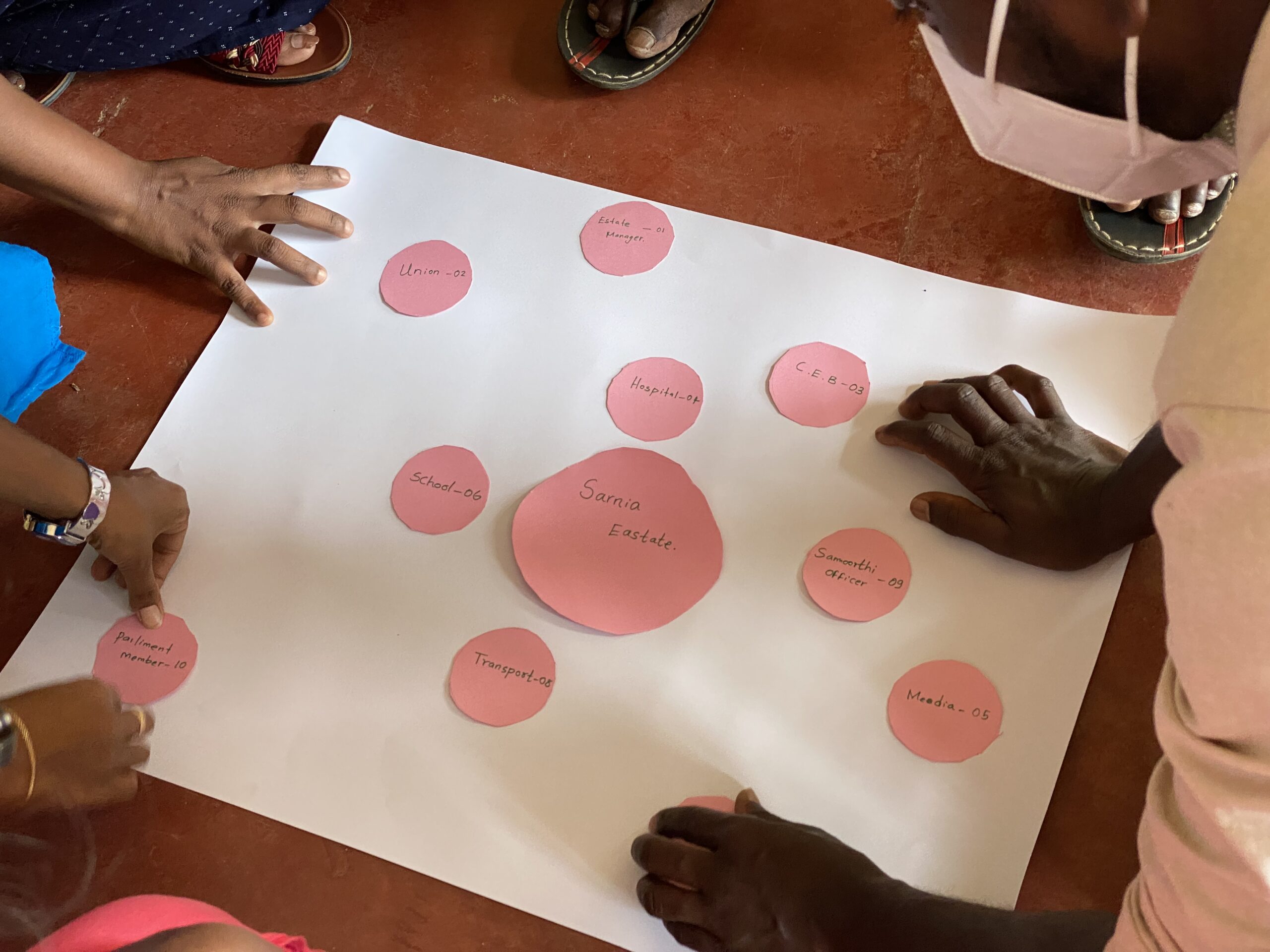As part of the research for the Inclusive Urban Infrastructure (IUI) study, members of the project team at the Centre for Migration Research and Development, SEVANATHA Urban Resource Centre and Institute of Development Studies conducted a four-day workshop to strengthen their understanding of the Systems of Provision (SoP) approach for the ongoing qualitative phase of the research. The workshop took place online on 25-27 May and 3 June.
A number of issues were discussed, including: data gathered and other information available; preliminary analysis and findings; SoP guidance notes and associated literature; and mapping of agents and relationships (through a practical team exercise) in the two selected research sites (Sarnia Estate and Nawagampura community) and the two selected infrastructure grids (water and housing). The agenda for the two-hour sessions over the four days was as below.
Day 1
- Revisit IUI project research questions and objectives
- Revisit SoP theoretical framework
- Review Dr. Kate Bayliss’s SoP guidance notes
- Discussion on 3 articles on water provided by Dr. Bayliss
- Securing human right to water of slum-dwellers in Mumbai, India: Achievements, limitations, and institutional appropriation
- Unmapped Water Access: Locating the Role of Religion in Access to Municipal Water Supply in Ahmedabad
- Consuming Citizenship: Prepaid Meters and the Politics of Technology in Mumbai
Day 2
- Revisit Water and Housing policy, systems and statistics documents prepared in Sri Lanka
- Discussion on Qualitative Resident Interviews water and housing data and early analysis conducted for Sarnia and Nawagampura from SoP approach (revisit quantitative analysis and results on dashboard)
Days 3 and 4
- Review and discussion of agents and systems diagrams prepared by various researchers and preparation of an enhanced local mapping outlining the SoP for Sarnia water and Nawagampura housing, drawing on all the available data, mappings and other information
- Specific areas of support required from Dr. Bayliss (i.e. finalizing the systems, agents identification, interview data quality, analysis etc.)
The activity was effective in providing a comprehensive and collective understating of the Sri Lanka project team’s current position in relation to the IUI research. Using Zoom and Jamboard, project team members were able to contribute to the development of the preliminary SoP mapping and share their views for further improvement. Below are the two diagrams for the SoP sites and grids.
Diagram 1: Preliminary SoP mapping for Sarnia Water

Diagram 2: Preliminary SoP mapping for Nawagampura Housing

